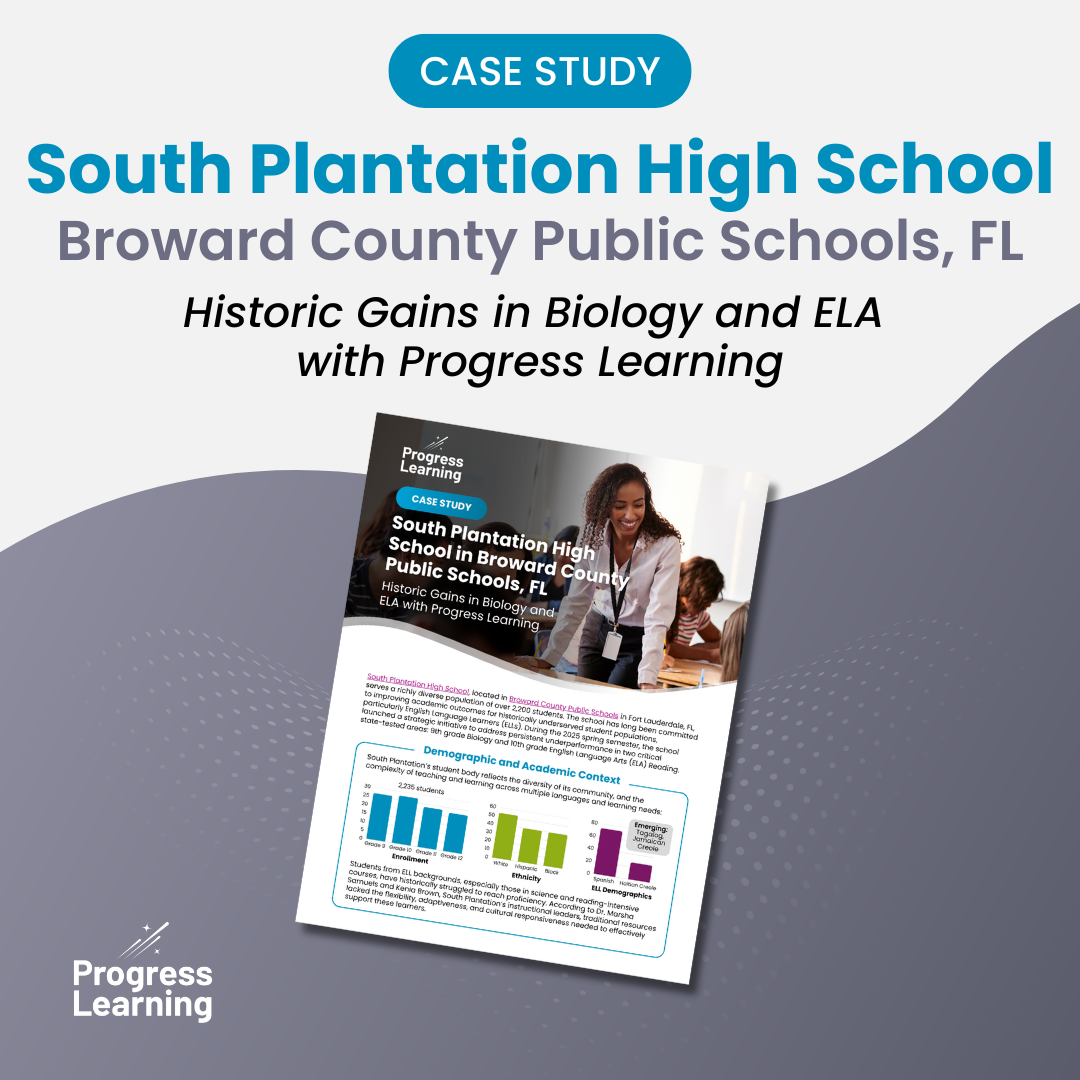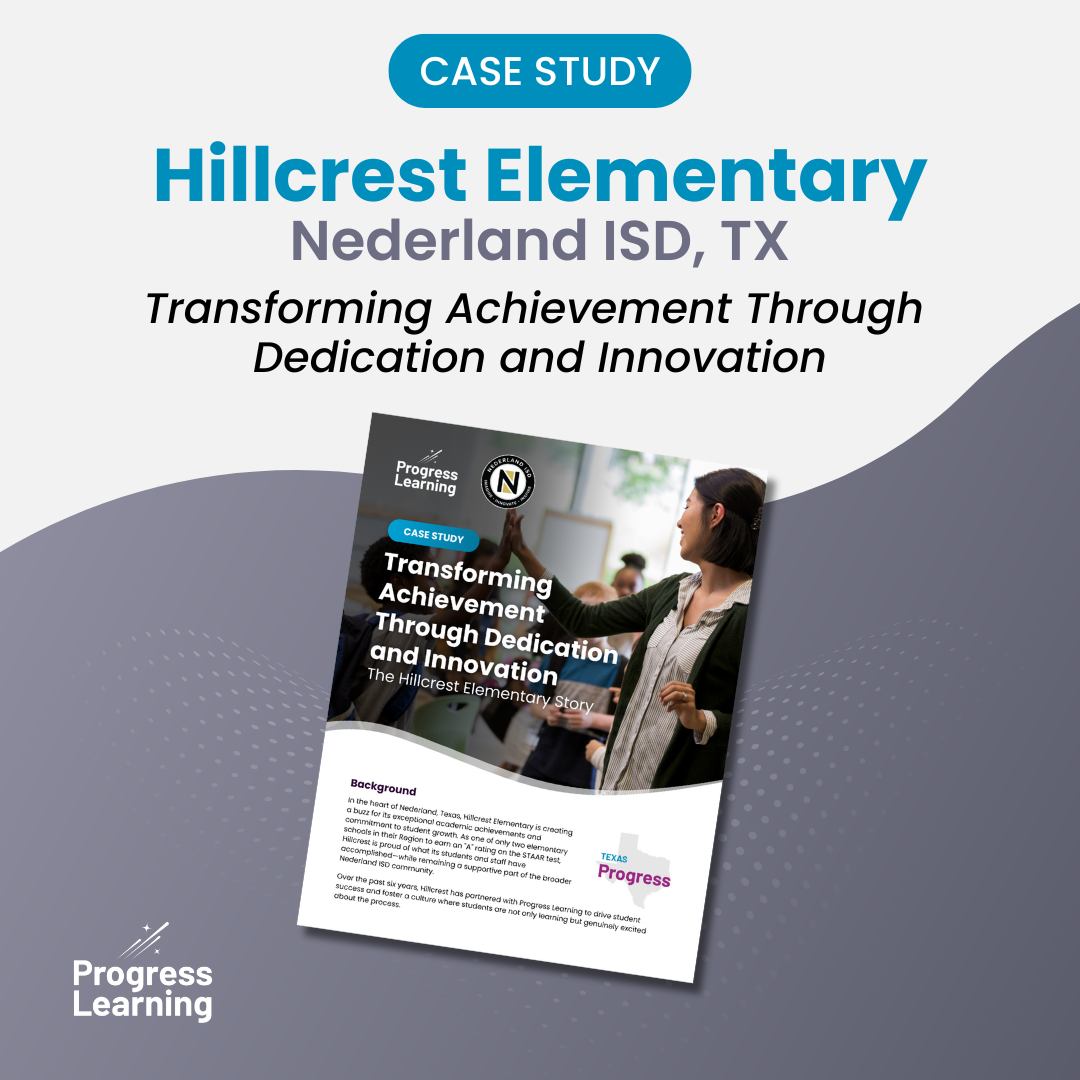Progress Learning Impact Study Results – McREL International
McREL International conducted a rigorous external study of the Progress Learning platform, using 6th Grade Mathematics achievement to determine the effect of the implementation of Progress Learning, for just one year, on student achievement.
When compared to similar non-user schools, Progress Learning had a statistically significant impact on student achievement.
Here’s everything you need to know about the study, the results, and what it means for educators.
Results of the Study
The McREL study found that in Grade 6 Mathematics, schools that used Progress Learning showed an average scale score of 325.03, compared to 323.27 for non-user schools. This adjusted mean difference of 1.76 scale score points is considered statistically significant, with an overall effect size of 0.19.
What do all those numbers mean? They show that Progress Learning can provide positive impacts in mathematical achievement over the course of a single school year of implementation.
Here’s what McREL had to say about how to interpret these findings:
- If schools purchase Progress Learning and implement it under similar conditions as schools included in this study, positive impacts may be found on mathematics achievement over the course of one school year of implementation.
- Given these promising findings, Progress Learning is well positioned to expand both the scope and scale of research to support their product.
- McREL also recommends that Progress Learning engage in more research to learn about program implementation. Specifically, there are many aspects of the Progress Learning platform, suggesting that it is a flexible tool that teachers can use in various ways.
About the Study
The study used Grade 6 Mathematics as the focus to study Progress Learning’s effectiveness. It examined student achievement over a school year of using Progress Learning, compared to comparable students who did not use Progress Learning in their classes.
The first step was to identify a set of schools that scored in the same range before they began using Progress Learning as a study and/or accelerated learning tool. As evidence that there wasn’t any bias in the selection, note that the schools which used Progress Learning actually scored slightly lower, in the preceding year, than did the non-user schools that year. In other words, the schools that did not use Progress Learning previously had a slight head start on the schools that did use it during the studied year.
It’s also important to note that the schools included in the study as Progress Learning users were those that implemented the program in a way that approached or reached the program’s minimal usage standard. This means that to achieve the results reflected in the study, schools should use Progress Learning to the fullness of its capabilities, as limited implementation can lead to limited results.
About McREL
McREL International is a private nonprofit, whose goal is to ‘make a difference in the quality of education for all learners through excellence in applied research, program evaluation, professional learning, technical assistance, product development, and service to those who are committed to improving lives and the organizational conditions to facilitate success.’
Essentially, McREL’s mission is to determine whether educational programs and products (such as Progress Learning) are truly effective in helping teachers teach, students learn, and schools meet their goals and the goals of their state governments and educational boards.
Ready to see the power of Progress Learning in action? Request a demo today.
Download the full study below.


